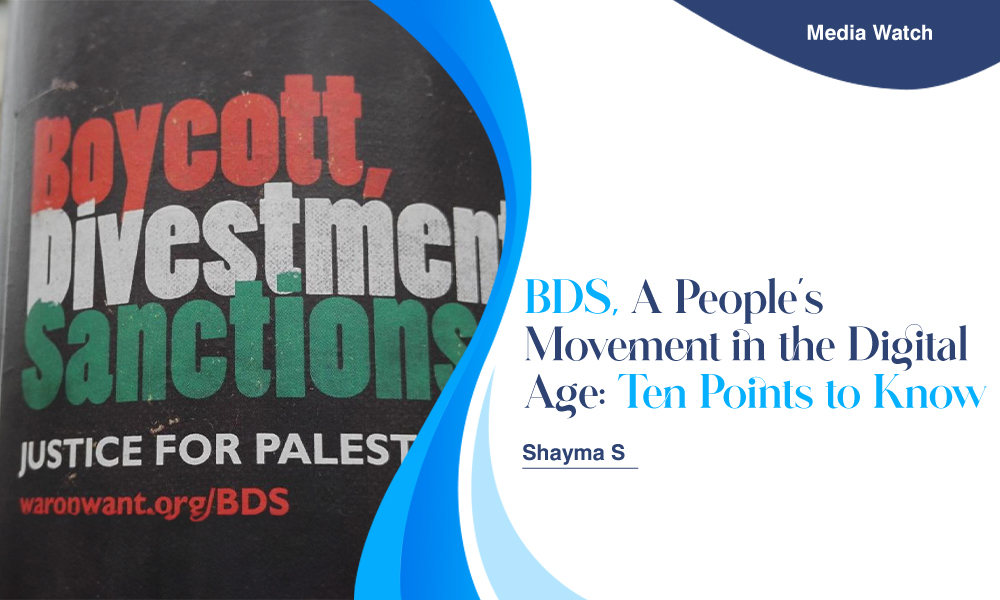Boycott, Divestment, Sanctions (BDS) is a Palestinian-led movement for freedom, justice and equality. BDS upholds the simple principle that Palestinians are entitled to the same rights as the rest of humanity. It involves unions, academic associations, religious bodies, grassroots movements and other groups of people coming together since 2005 to challenge the global consensus on Israeli apartheid and settler colonialism, which has a very strong economic backbone due to the Israeli government’s investments globally.
Why BDS? Israel maintains a regime of settler colonialism, apartheid and occupation over the Palestinian people. This is only possible because of international support. Governments fail to hold Israel to account, while corporations and institutions across the world help Israel to oppress Palestinians. BDS breaks this normalcy and complicity.
The BDS movement has been a resounding success over the years, pushing corporations and prominent individuals alike to not support Israel or avoid performing in or funding Israel.
What’s BDS’ role this time around? Although BDS is over decades old, it has made its presence felt over the last two months with young social media users taking to sites like TikTok and Snapchat to highlight what needs to be boycotted and why.
BDS advocates for targeted boycotts that can be sustained, and therefore selects major companies that have investments in Israel or those that publicly fund Israel. It also advocates for pressure building and advocacy against other firms that cannot be effectively boycotted.
But this time, BDS has gone truly democratic – shopkeepers in India have taken it upon themselves to replace Israeli products with other replacements, big firms have come under intense pressure and more and more people are very aware of the local boycotts in their area and region.
According to the Armed Conflict Location & Events Data Project, a nongovernmental organisation specialising in conflict data collection, from October 7 to November 24, there were at least 7,283 pro-Palestine protests that took place in more than 118 countries and territories. BDS has been a huge part of the awareness campaigns in these protests.
BDS is modeled after the Anti-Apartheid Movement drawn from the history of South African apartheid. Protests and conferences in support of the movement have been held in several countries. Its mascot is Handala, a symbol of Palestinian identity.
According to the official BDS site, its three major aspects are
Ending its occupation and colonisation of all Arab lands and dismantling the Wall
Recognizing the fundamental rights of the Arab-Palestinian citizens of Israel to full equality
Respecting, protecting and promoting the rights of Palestinian refugees to return to their homes and properties as stipulated in the UN Resolution 194
Finally – you can all be part of the BDS movement. Every single boycott plays its part; making people aware and making conscious choices is the most important thing you can do, especially in the middle of the current onslaught.
What are Boycotts, Divestment & Sanctions?
BOYCOTTS involve withdrawing support from Israel’s apartheid regime, complicit Israeli sporting, cultural and academic institutions, and from all Israeli and international companies engaged in violations of Palestinian human rights.
DIVESTMENT campaigns urge banks, local councils, churches, pension funds and universities to withdraw investments from the State of Israel and all Israeli and international companies that sustain Israeli apartheid.
SANCTIONS campaigns pressure governments to fulfill their legal obligations to end Israeli apartheid, and not aid or assist its maintenance, by banning business with illegal Israeli settlements, ending military trade and free-trade agreements, as well as suspending Israel’s membership in international forums such as UN bodies and FIFA.


0 Comments